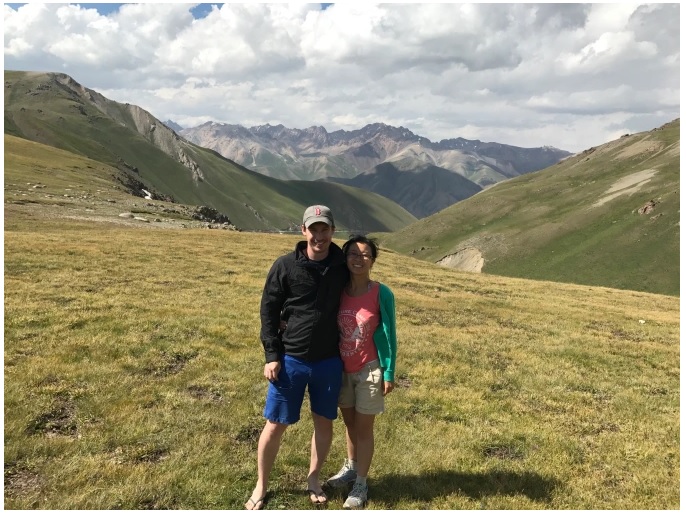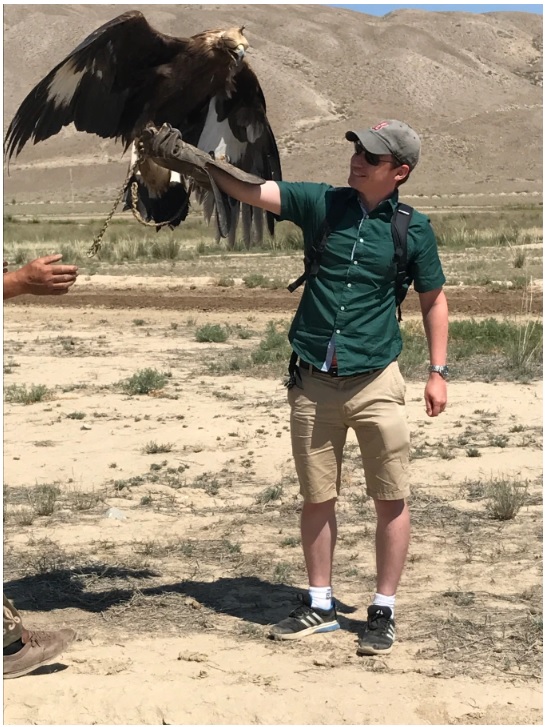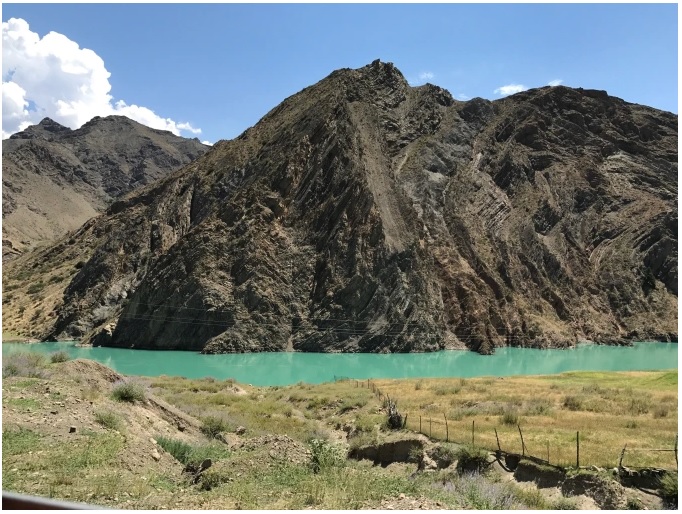Knowledge Exchange

Becoming a Full-time Traveller for Two Years
Making the decision to travel around the world is a big but thrilling decision. Travelling exposes you to the diversity and beauty of people and landscapes across the globe and helps many find meaning and purpose in their lives. The HKU MBA team meets with David Byrne, Part-time Year 1 student, who was bold enough to quit his job and travel all around the world for 2 years. Here is his story.
HKU MBA: It is fantastic to travel the world. You’ve been working as an Equity Research Analyst at Citibank in London. What was your main motivation to start travelling for a long time?
David Byrne: My wife and I had always intended on going travelling together. By 2017 we were married, we had successful careers and had built a property portfolio that could sustain us financially. Everything was in place. In a way it was actually the vision of walking the path less travelled, seeing and having new experiences every day, living freely, outside of the routines demanded by modern life that drove me to work so hard and dedicate myself so completely to my career up until that point. It wasn’t a quick decision to resign from our jobs and hit the road, it was the realisation of a goal that was years in the making.
Time flies by when you are in a routine, it also slows down with novelty. The main motivation for taking such a long trip was to give us the opportunity to really experience the countries we were travelling to. To see all of the changes in landscape, people, culture and real-life along the Silk Road – through each of the often-overlooked countries that lie between Europe and China. You just can’t do that justice in a two-week holiday. The trip was also a chance for my wife and I to savour our time together as a couple, ahead of starting a whole new adventure: family life.
HKU MBA: I understand there are some planning measures you must first take to ensure you have durable luggage and the proper documents – a passport and possibly visas. How was the preparation process?
David Byrne: We weren’t new to backpacking so we already had our bergens (large backpacks) but there were a lot of visas and vaccines still to organise. Luckily for us, as we were located in London, all the embassies were close by. Therefore, I could prepare and submit everything myself. There was also a travel clinic within walking distance of both our offices in Canary Wharf so we were able to get all our shots for Japanese encephalitis and rabies etc. in our lunch breaks. Fortunately, we didn’t suffer any side effects in the afternoons. The harder part was packing our lives up. There is only so much you can take even in a very large backpack. So we boxed up our pictures, keepsakes and all the items that helped make our lives in London, and shipped them off to Ireland where due to COVID-19 they still lie. There was something slightly sad about packing up our stuff and handing over our first proper home to our tenants, but that sadness was short-lived as our travels had just begun.
HKU MBA: After all that preparation, how did you book your trip around the world? Where were your main destinations and why?
David Byrne: I’m not sure if these companies still exist, due to COVID-19, but back in 2017 there was a small subsector of the travel industry, left over from the hippy trail days called overlanding. These companies arrange trips where you travel overland on repurposed trucks through whole continents if you wish to.
Because we wanted to travel the whole Silk Road, that meant going through Turkmenistan, Uzbekistan and western China. Back then you needed to have invitation letters and be on an organised tour to get a visa to visit these places. For us, that necessitated booking a trip with a company called Dragoman, which would take us from Turkey all the way through to Xi’an in China – the rest was up to us. Europe and Asia are far easier to travel around independently. Due to our nationalities, we didn’t really need anything more than e-visas for the rest of the countries, and they were pretty easy to organise.
Unlike the Silk Road part of our trip, our route through Southeast Asia was based on friends’ recommendations and places we were interested in seeing more of, or we really wanted to see for the first time. Malaysia’s Tamen Negar rainforest, for example, was a must for us. On the Southeast Asia leg we visited Vietnam, Singapore, Cambodia, and a decent part of Malaysia, as well as trips to Bali and northern Thailand. Originally we were also supposed to take part in a tuk-tuk rally in Cambodia. I think we would have been their first Irish-Hong Kongese team, but alas the rally was cancelled.
HKU MBA: What was the most memorable country?
David Byrne: For me, the most memorable country was Kyrgyzstan. It was far more open than the other stans which we travelled through, and the mixture of soviet and nomadic culture alongside truly epic scenery and incredibly hospitable locals was something that definitely left a mark on me. The food there isn’t that great, but I guess you can’t have everything.
HKU MBA: For most people, the first time they travel abroad exposes them to that unique sensation and thrill of discovering that people don’t live the same as you back home. What was the true reflection of your travel?
David Byrne: Up until I took this trip, I had lived pretty much all my life in western Europe. In 2007 I took a trip through mainland China, and while that was massively different to what I was used to, despite not being able to read or understand anything, things still worked in more or less a similar way.
There were countries on this trip for which that just wasn’t the case. They opened my eyes to how much I take relative good governance, free enterprise and sensible regulation for granted. For example, in one country, Turkmenistan, every car has to be white because the leader says so. The capital city of that same country, which was remarkably empty of people but yet full of police, also has a colour scheme. Everything had to be white, green and gold. There is a ferry service between Turkmenistan and Azerbaijan across the Caspian Sea, but that service has no schedule, it just goes when it’s full. It can wait days to dock and days to go. I couldn’t understand how a business could run like that? It was truly bizarre to me.
Also, in some countries they had official exchange rates set by the government rather than the market. That meant that there were in effect two exchange rates: one that the government uses and a black-market rate which everyone else uses, creating boundless opportunities for graft. There were other things that struck me, such as certain countries having petrol and diesel shortages as there was a global supply glut.
But what really struck me was how big of an impact borders can have. I’d experienced borders before, but in Europe they were very different.
Most of the time there are no border checks and even if there were, once across them the language may change but there wasn’t a massive and noticeable wealth or freedom gap from one country to the next. That isn’t the case in many other parts of the world. While the trip further reinforced my feeling of the shared humanity between peoples and cultures, it also made me reflect on just how lucky I am to be born where I was, and that I shouldn’t take the positive endowments that came along with that for granted.
HKU MBA: Do you have any advice or tips for those who want to travel around the world just like you?
David Byrne: You need to have a lot of patience. Whether it’s taking flights, crossing borders, or making arrangements, you have to go with the flow. Getting angry won’t make the process any quicker, and you can’t enjoy yourself if you are worked up because it took a whole day to cross a border. You are on a long trip, you don’t have to be back at work on Monday.
Do your research, make sure you know what you want to see, that you are aware of how to book travel in the country, and that you know in advance of the areas in cities or countries that are best avoided risk-wise. Most people are good, but the world isn’t all rainbows and unicorns either. On this, also read up on common tourist scams so you can avoid them.
Have all your paperwork in order and double-check what type of visa you need so you have exactly the right one. I was very thorough with this and we didn’t have any trouble, but we did see other people have difficulties and in some cases we even saw people forced to pay bribes.
One of the most dangerous things you can do when you are travelling is to travel by road. To minimise that risk, when possible avoid driving at night.
Don’t make assumptions, check things beforehand. For example, I assumed a normal soft sleeper in Vietnam would be about the same standard as a hard sleeper in mainland China in the late 00’s, which were pretty good. I was very wrong and my wife was not very happy. Vietnam does have a luxurious tourist train, but the regular ones (at least back in 2017) were uncomfortable and pretty unsanitary.
When travelling in a cheap country, pay a few extra dollars and get a nicer room or hotel. On a long trip, it’s worth it.
Pick your companion wisely. You will be spending a great deal of time with each other and not always in the most comfortable of circumstances. I’d been together with my wife for many years before we took our trip, so we knew we were pretty compatible.
Finally enjoy yourself, live in the moment, soak up the experiences and make rich, life long memories.
Find more stories at his blog https://agnesdaveadventure.wordpress.com/












